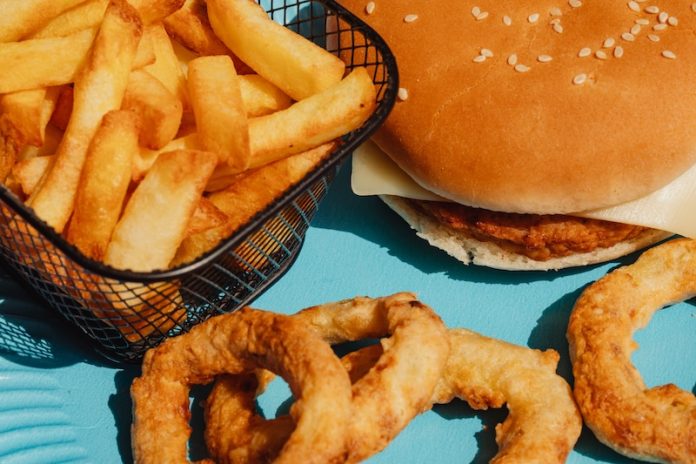
You’ve probably heard the catchy potato chip slogan, “You can’t eat just one.” But is there some truth to it?
A study conducted by the University of Michigan suggests that people might actually show signs of addiction to ultra-processed foods, including popular snacks like potato chips and sugary treats like ice cream.
What’s in the Study?
The researchers behind this study took a close look at 281 studies from 36 different countries. Their goal was to determine whether people could be addicted to ultra-processed foods, and if so, how common this addiction might be.
These foods, often loaded with sugar and carbohydrates, are known for their low nutritional value.
The study revealed some surprising findings. It turns out that 14% of adults and 12% of children in the study displayed signs of addiction to ultra-processed foods.
They used a scale called the Yale Food Addiction Scale to define this addiction. What’s even more astonishing is that these levels of addiction were similar to those observed in people addicted to alcohol and tobacco.
Ashley Gearhardt, the lead researcher and a psychology professor at the University of Michigan, believes this study highlights the significance of ultra-processed food addiction.
She says, “There is converging and consistent support for the validity and clinical relevance of ultra-processed food addiction.”
By recognizing that certain processed foods can have addictive properties, we may be able to take steps to improve global health.
Understanding Ultra-Processed Foods
Alexandra DiFeliceantonio, an assistant professor at Virginia Tech University and co-author of the study, pointed out that many natural or minimally processed foods provide energy either in the form of carbohydrates or fat, but not both.
In contrast, ultra-processed foods often combine both, making them particularly enticing to our taste buds.
While this study suggests a link between ultra-processed food and addiction, not everyone is convinced. Erin Palinski-Wade, a dietitian based in New Jersey, remains skeptical of these findings.
She believes that although foods rich in added sugar can trigger the brain’s feel-good chemicals and create habits, sugar itself is not addictive like drugs such as cocaine.
Palinski-Wade asserts that quitting sugar won’t result in withdrawal symptoms or side effects akin to what drug addicts experience when they stop using.
She emphasizes that food cravings are complex and involve emotions and learned behaviors surrounding eating.
Implications and Future Directions
The study’s key findings suggest that ultra-processed foods high in refined carbs and added fats can be highly rewarding and potentially addictive.
In fact, behaviors related to these foods might meet the criteria for a diagnosis of substance use disorder in some individuals. This insight could lead to new approaches in clinical care and policy-making.
Ashley Gearhardt stresses the importance of understanding global addiction to these foods, especially in low- and middle-income countries.
The affordability, convenience, and aggressive marketing of ultra-processed foods make them appealing choices for many people. Changing these factors, she notes, will require courageous action.
In conclusion, while the debate over whether ultra-processed foods are truly addictive continues, this study sheds light on the potential risks associated with excessive consumption of these products.
It reminds us of the need to make informed choices about our diets and the importance of ongoing research into the impact of our food choices on our health.
If you care about high blood pressure, please read studies about potatoes and high blood pressure, and top 10 choices for a blood pressure-friendly diet
For more information about high blood pressure, please see recent studies about impact of vitamins on high blood pressure you need to know, and the powerful link between high blood pressure and a potassium-rich diet.
Follow us on Twitter for more articles about this topic.
Copyright © 2023 Knowridge Science Report. All rights reserved.



